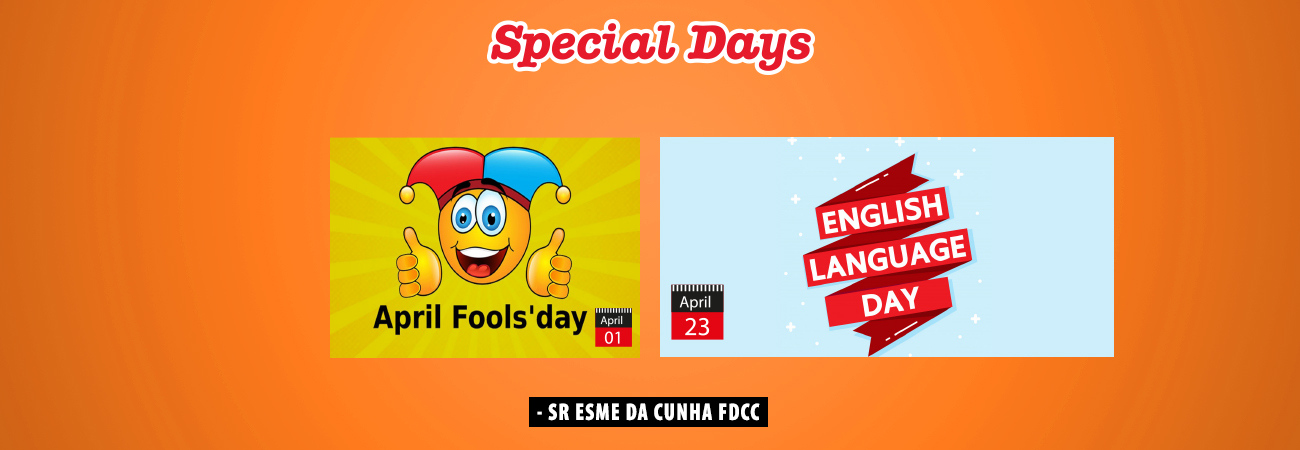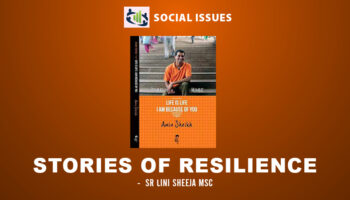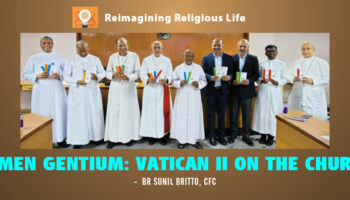April 1: April Fools’ Day
This day is celebrated each year for centuries by different cultures, though its exact origins remain a mystery. Traditionally it is a day to play practical jokes on others.
Some historians hold that this practice dates back to 1582, when France switched from the Julian calendar to the Gregorian calendar, as called for by the Council of Trent in 1563. In the Julian calendar, the New Year began with the spring equinox, around April 1.
Those slow to get the news, or who failed to recognize that the start of the New Year had moved to January 1, became the butt of jokes and were called “April fools.”
But this explanation doesn’t fully account for the spread of April Fools’ Day to other European countries. For example, the Gregorian calendar was not adopted by England until 1752, though by then, April Fools’ Day was already well established there.
The custom of setting aside a day for playing harmless pranks is relatively common worldwide. The positive view is that April Fools’ Day can be good for health because it encourages jokes, hoaxes, pranks and belly laughs. These bring in all the benefits of laughter, including stress relief and reduced heart strain. The negative view describes these as rude and nasty. It’s difficult to believe whether a person is being serious or playing a prank on you, if it happens to be April 1.
Sometimes even the media is involved in these pranks. Stories intended as jokes may be taken seriously, or genuine news may be misinterpreted as a joke. Either way this might cause confusion, misinformation and even legal or commercial consequences.
Many different cultures have had days of foolishness around the start of April. The Romans had a festival named Hilaria. The Hindu calendar has Holi. The Jewish calendar has Purim. Perhaps there’s something about this time of year, with its turn from winter to spring, that lends itself to light-hearted celebrations.
Scan your favourite newspapers or news websites this April 1. You might find headlines that look suspicious. Perhaps some of those stories are complete hoaxes. After all, it’s April Fools’ Day.
23 April: English Language Day
Multilingualism and cultural diversity in the UN is an essential factor for the harmonious communication among peoples.
Language Days are the result of a 2010 initiative by the Department of Global Communications, to increase awareness and respect among the UN community, for the history, culture and achievements of each of its six official, working languages: Arabic, Chinese, English, French, Russian, Spanish.
Numerous activities have been undertaken, from 1946 to the present, to promote the equal use of these languages to ensure that the goals and actions of the UN are understood by the widest possible public.
English Language Day is celebrated on 23 April, the date traditionally observed as both the birthday and date of death of William Shakespeare, the English language’s most famous playwright.
The language began in the fifth century when Germanic tribes from the Anglia peninsula that juts out into the Baltic Sea, invaded Celtic-speaking Britain and brought their languages with them. It slowly developed to become the language of what was once the most powerful nation in the world. With the explosion of colonialism, it spread across the world like wildfire and has since become the language of commerce in countries all over the world.
ELD celebrates this language, its history, and its oddities!
Beginning with just three tribes about 1500 years ago, English has taken on the grammar, tones, and words from every language it has come into contact with. More than 1.75 billion people speak English worldwide – that’s around 1 in 4 people around the world. English is the official language of the skies: Pilots speak in English on international flights. It is the most widely used language on the Internet and social media. English has official status in at least 75 countries, with a total population of over two billion.
There are also its variations. Canadian English, UK English, Scots English, and American English all have their own little colloquialisms and slang that differ broadly from each other!
In India, around 100 million people speak English.
One language with so many variations! And it is still considered a single language!
Sr Esme da Cunha FDCC
To subscribe to the magazine, click Subscribe





